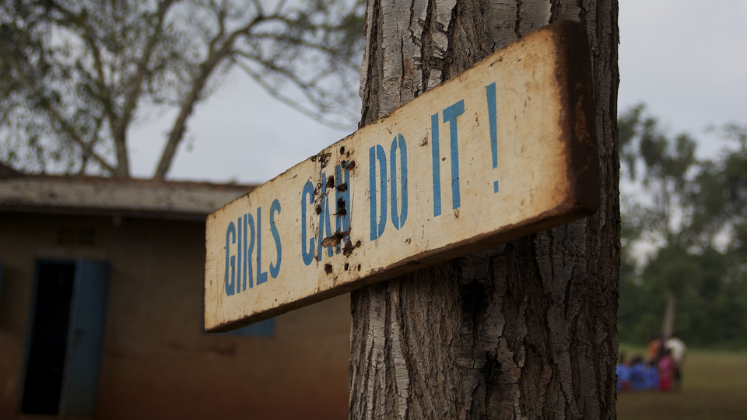Let’s break the bias around women ageing. Let’s exhale.
This post has been written by Pragya Lal (studying a master’s in Social and Public Communication at LSE) as part of a series for International Women’s Day 2022. Read the all the posts here.
As a single woman turning thirty this year, I have never been more aware of societal gaze as I am today. Ageing for women marks not just another trip around the sun but an omnipresent pressure to attain milestones of marriage and reproduction.
Men are socially influenced to construct their identities around being breadwinners. Their ability to provide for their families makes them feel like good partners and parents. It is not a surprise then, that men define success largely by their success at work.
However, for women, being successful is a multi-dimensional minefield; often equated with balancing a long-term partner, a glass-ceiling-breaking career, a methodical skin care routine and a ravishing body at the same time.
Research indicates that the rational part of the human brain only fully develops by the age of 25. Why then, are women so afraid of ageing post this stage?
The answer is complex. “An older woman is a cougar, and an older man is a silver fox,” a friend remarked recently. Both animal metaphors signal different meanings and highlight societal hypocrisy that is now seeped into our day-to-day linguistic practices. A cougar is a predatory older woman who lures a young man, while a silver fox is simply a sexy, older man who exists. Men are considered more desirable as they age, while there are industries built around ensuring women don’t appear a day over 16 for the rest of their lives.
According to popular culture, women only exist in binaries. The unimaginative male gaze would have us believe that either one is single and miserable or married and miserable. Either one is a childless slut or a MILF. Either one is an unambitious, stay at home mom or a cold-hearted, cut-throat, career-oriented girl boss. These binaries pit women who choose one way of life over another against each other, forcing creations of in-groups and promoting out-group hostility. Repeated exposure to these stereotypes also makes us think that these are the only life paths available to us.
With time, women’s sense of self-worth becomes so closely intertwined with physical attractiveness and reproductive capacity that the implied loss of both with ageing aggravates the fear around it. “If you don’t get married now, you will never find a man and will be all alone,” my thirty something friend’s worried Indian mother tells her. The pressure to find “the one” and “settle down” permeates through most conversations women in this age group have with their friends and families. You could single-handedly discover the cure for COVID-19 or solve world hunger, yet if you are unmarried and childless, in the eyes of most middle-class, Indian parents your life would remain incomplete and unfulfilled.
Patriarchal discourse suggests that the alternative to the life of ‘timely’ matrimony is that of a lonely, alcoholic, childless spinster who dies in an empty apartment and is then eaten by her own pets. This narrative invisibilizes the role of friendships and relationships outside of marriage in creating a sense of belonging, building self-esteem and fostering psychological safety in the lives of women as they age.
In a world where women’s bodies and lives are heavily scrutinised, critiqued and considered a reflection of a family’s honour, women often earn their right to live a life on their terms through hard-won financial independence which comes with age.
Sometimes, I feel like I am part of a generation of women who are holding their breath as we push towards checking all the right boxes listed out for us, ensuring we don’t let anyone down. Our mothers did the same, so did their mothers and after a point some of them added no more boxes of fulfilment on their checklists that were purely for themselves. At the precipice of 30, I realise that I cannot play the role of Sisyphus rolling up the boulder of societal expectation year after year – I don’t have the upper body strength for it.
It is important to remind ourselves that there is no expiry date to one’s hopes, dreams and ambitions. Alice Munro published her first collection of short stories at 37, Vera Wang designed her first dress at 40, Julia Child wrote her first cookbook at 50 and Ariana Huffington founded Huffington Post at 55.
To live our lives like we will spontaneously combust after hitting 30 (or any other age) undermines the richness of experiences that await us. In a study with 19,000 participants aged 18-68, researchers found that people at every age underestimated the magnitude of future changes in their personalities, values and preferences with time. Termed the “end of history illusion” this thought process leads us to making sub-optimal decisions in the present. Supporting the theory about the U-curve of happiness which claims that happiness dips during mid-life and increases as we age, another recent study found that those in their 60s,70s,80s were calmer, more optimistic, more cheerful and full of life than those who were 20,30 or 40 years old.
In sum, we are not running out of time to live our best lives or make the big, bold decisions we have always wanted to make – whether they be about changing the world or just be-ing. The best is yet to come no matter what your age is.
Let’s break the bias around women ageing. Let’s exhale.
Notes:
- This post expresses the views of the author and not the Department of Psychological and Behavioural Science, nor the LSE.
- This post is part of a series for International Women’s Day 2022. Read all the posts in the series here.
- Image sourced via Canva.



An article that spreads hope to every woman (and hopefully man) – whatever the age! Thank you.